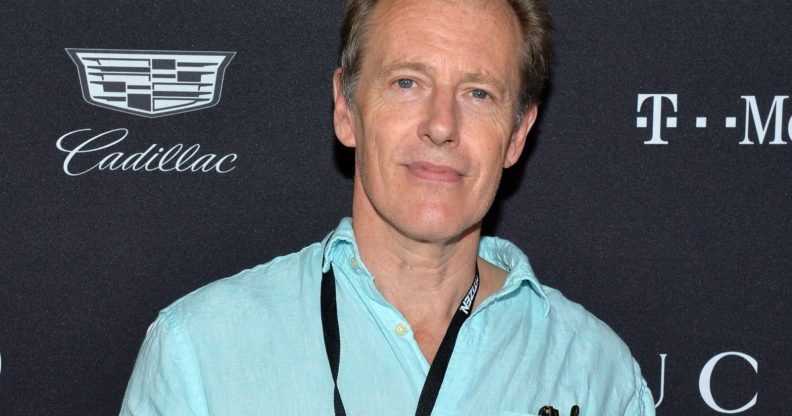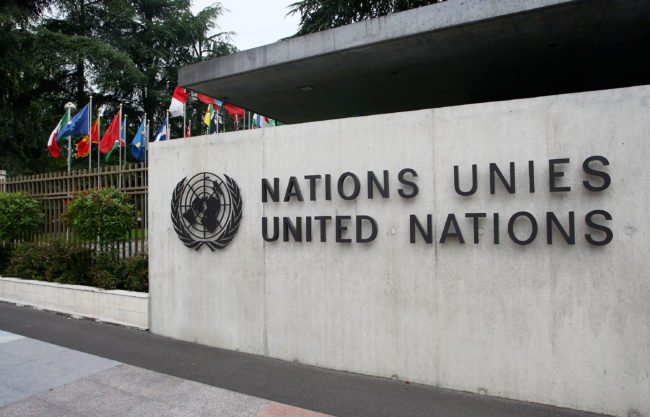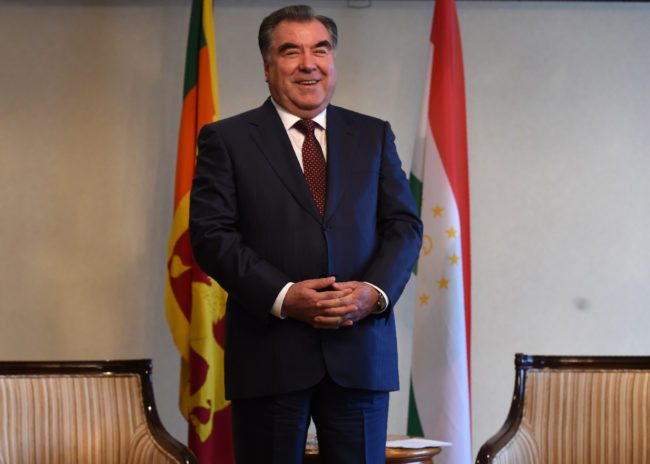UN human rights chief: We must challenge ‘myth’ that LGBT rights is a Western agenda

Assistant Secretary-General for Human Rights and head of the OHCHR in NY Andrew Gilmour poses in the VIP Lounge during the 2017 Global Citizen Festival in Central Park on September 23, 2017 in New York City. (Noam Galai/Getty)
The United Nations‘ human rights chief has warned that some nations overseas are attempting to propagate the “myth” that LGBT rights is part of a “Western agenda.”
Speaking at The Economist‘s LGBT-skewed Pride and Prejudice conference in London on Thursday, the UN Assistant Secretary-General for Human Rights Andrew Gilmour noted substantial setbacks for global LGBT rights in recent years.
He said: “The LGBTI agenda in the West has made tremendous progress over the past 10-15 years, but [it] is suffering in many parts of the world. There is a big pushback, partly in reaction to success in the West.
“There is a squeezing of civil society and NGOs that has made things much much harder. There has to be a more intelligent use of leverage, and the private sector [can do a lot] by showing in its own businesses that it doesn’t tolerate discrimination, and actually respects LGBTI people.”

The United Nations (Photo by Johannes Simon/Getty)
Gilmour added: “Just last week I was in central Asia where they’re not remotely friendly to the LGBTI agenda. I gave a number of lectures to students in the region. The questions came more from the old guard and the professors: ‘Aren’t human rights a Western agenda?’
“I know that precisely what they were thinking about is the LBGTI issue. My response there was that we are not imposing or seeking to push a pro-LGBTI agenda.
“The Russian government in particular accuses the West – and indeed the UN – of imposing alien values on traditional Slavic cultures. That is a line they use, and they associate it with opposition to the Putin government and with the EU.
“That narrative is out there, but my line is that we’re not trying to impose a gay agenda. What we do oppose is discrimination.”
Gilmour said that he witnessed “grotesque discrimination” in one particular country he visited – Tajikistan, the Central Asian country that borders Afghanistan, Uzbekistan and China.
“Tajikistan set up a register of suspected gay [people] that the police then used to go and blackmail. There’s extortion and beatings and it’s extremely unpleasant,” Gilmour said.

President of Tajikistan Emomali Rahmon (Getty)
“What we’re trying to do is push back against discrimination, and that is our line because it’s always easy to say, ‘The human rights agenda is a Western agenda,’ which it isn’t.
“There is this myth out there that human rights is a Western agenda, and some governments are very keen to propagate that myth.”
The human rights activist added that businesses have some responsibility to stand up for equality in places where others can’t.
“Uganda, as many people know, the government is one of the most hostile to LGBTI rights. We had a meeting there. A lot of the world’s biggest companies are in Kampala, but not one company dared show up,” said Gilmour.
“I take on board that you’ve got to be careful and protect your staff, but there’s taking caution too far, frankly.”
Gilmour also criticised technology giants, saying: “A major social network in the Gulf has just banned all LGBTI messages, but the same company is a great supporter of what we’re trying to do [elsewhere.
“You’ve got to stand up a little bit, particularly if you’re a huge company and you have the muscle to stand up. That company, I very much doubt would get blocked in the Gulf – it’s a global giant.
“As a general principle, I am in favour of companies standing up to that, because if they don’t, nobody else can.”

